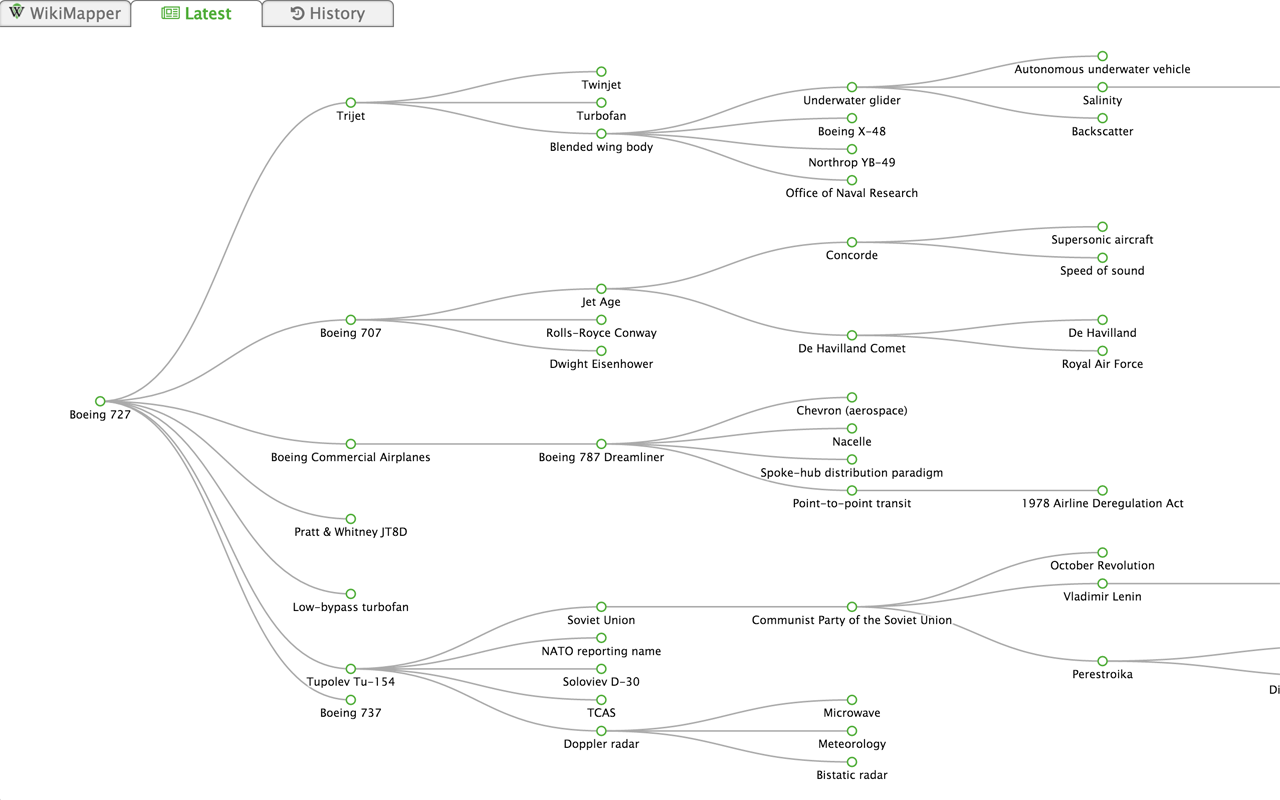WikiMapper 2.0
If you are like me you probably often find yourself reading obscure and esoteric articles on Wikipedia. It usually starts out as something specific, or even productive. But after clicking through dozens of those little blue links, opening up countless tabs, which lead to more links and more tabs, you catch yourself reading about the History of Agriculture in Uzbekistan or The 1991 Population Census in Bosnia & Herzegovina. And you may ask yourself, “how did I get here?”.
This phenomenon was beautifully summed up by xkcd:
If you can relate, you need WikiMapper!
WikiMapper is a lightweight, passive Google Chrome extension that visualizes your Wikipedia stumblings so that you can see precisely how you got from Point A to Point B, and C, and D, etc.

Once installed you don’t have to do anything special to activate WikiMapper – just browse on Wikipedia as you normally would. WikiMapper stores your sessions for reviewing later, and at any time you can open up WikiMapper to see your visualizations.
A Few Words About The Project
I originally developed WikiMapper in 2014 as a quick dataviz tool mostly for my own personal use. It worked well and I found it interesting, so I polished it up a bit and released it to the public for free via the Chrome Store. With hardly any promotion on my part it managed to pick up 1500-2000 daily users, a brief feature on LifeHacker, as well as spur a few discussions with other developers.
But v1 was, and always had been, pretty ugly under the hood. And pretty ugly in the UI, for that matter. I was a Javascript novice at the time, and I was more interested in just making it work than making it work well.
Version 2.0 of WikiMapper has been in development on and off for over a year. I tossed out most of the original source and started over. I’m much more proud of v2, although like any software project I have plenty of design regrets and things I would have done differently in retrospect. But I still think it works much better, is more efficient, less buggy, and the look and feel is all around more polished.
I had been sitting on a release candidate for several months while I used it personally to test and debug any remaining quirks, and finally felt happy enough with it to release it to the public. It’s still not perfect, but it is a huge improvement over WikiMapper v1. I do hope that you check it out and enjoy it!
Get WikiMapper in the Google Chrome Store!
As always, WikiMapper is a free and open-source software (MIT) project and is hosted on GitHub. WikiMapper does not collect any personal information, does not serve any ads, and does not transmit any data of any kind to anyone.
